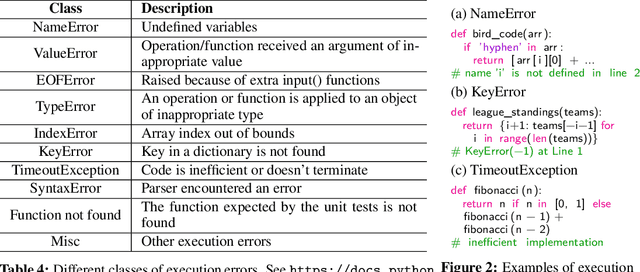Shuvendu K Lahiri
Automated Proof Generation for Rust Code via Self-Evolution
Oct 21, 2024



Abstract:Ensuring correctness is crucial for code generation. Formal verification offers a definitive assurance of correctness, but demands substantial human effort in proof construction and hence raises a pressing need for automation. The primary obstacle lies in the severe lack of data - there is much less proof than code for LLMs to train upon. In this paper, we introduce SAFE, a novel framework that overcomes the lack of human-written proof to enable automated proof generation of Rust code. SAFE establishes a self-evolving cycle where data synthesis and fine-tuning collaborate to enhance the model capability, leveraging the definitive power of a symbolic verifier in telling correct proof from incorrect ones. SAFE also re-purposes the large number of synthesized incorrect proofs to train the self-debugging capability of the fine-tuned models, empowering them to fix incorrect proofs based on the verifier's feedback. SAFE demonstrates superior efficiency and precision compared to GPT-4o. Through tens of thousands of synthesized proofs and the self-debugging mechanism, we improve the capability of open-source models, initially unacquainted with formal verification, to automatically write proof for Rust code. This advancement leads to a significant improvement in performance, achieving a 70.50% accuracy rate in a benchmark crafted by human experts, a significant leap over GPT-4o's performance of 24.46%.
Fault-Aware Neural Code Rankers
Jun 04, 2022



Abstract:Large language models (LLMs) have demonstrated an impressive ability to generate code for various programming tasks. In many instances, LLMs can generate a correct program for a task when given numerous trials. Consequently, a recent trend is to do large scale sampling of programs using a model and then filtering/ranking the programs based on the program execution on a small number of known unit tests to select one candidate solution. However, these approaches assume that the unit tests are given and assume the ability to safely execute the generated programs (which can do arbitrary dangerous operations such as file manipulations). Both of the above assumptions are impractical in real-world software development. In this paper, we propose fault-aware neural code rankers that can predict the correctness of a sampled program without executing it. The fault-aware rankers are trained to predict different kinds of execution information such as predicting the exact compile/runtime error type (e.g., an IndexError or a TypeError). We show that our fault-aware rankers can significantly increase the pass@1 accuracy of various code generation models (including Codex, GPT-Neo, GPT-J) on APPS, HumanEval and MBPP datasets.
 Add to Chrome
Add to Chrome Add to Firefox
Add to Firefox Add to Edge
Add to Edge